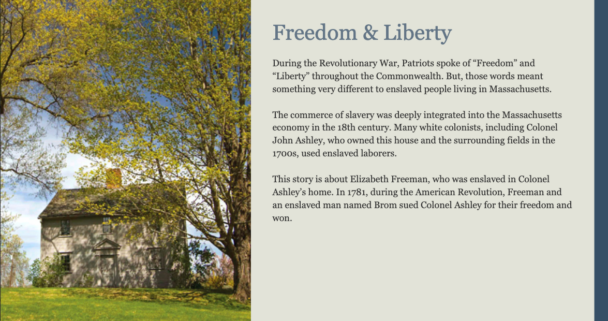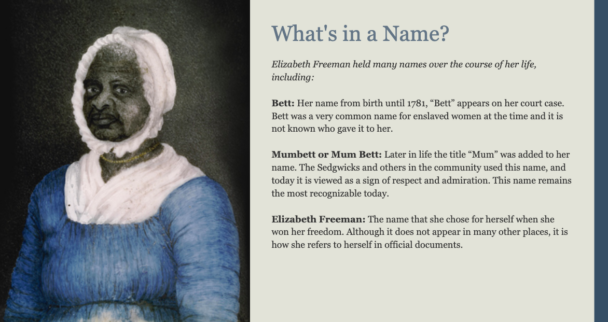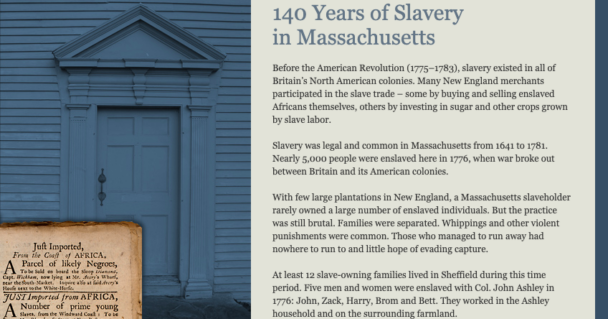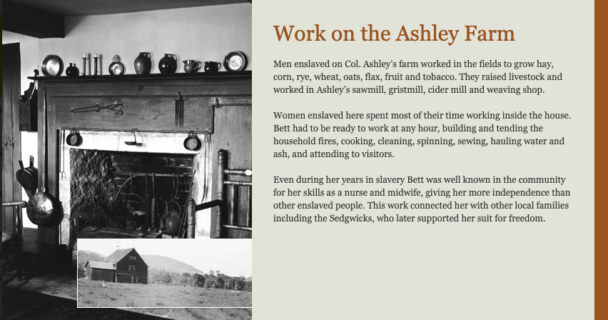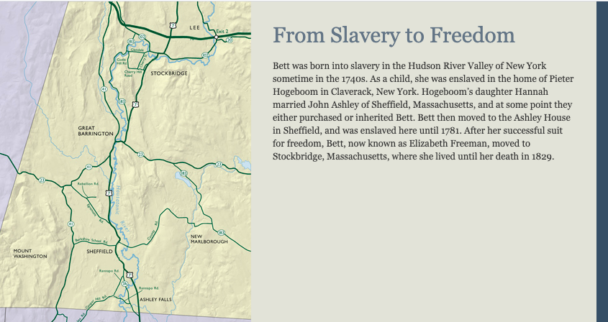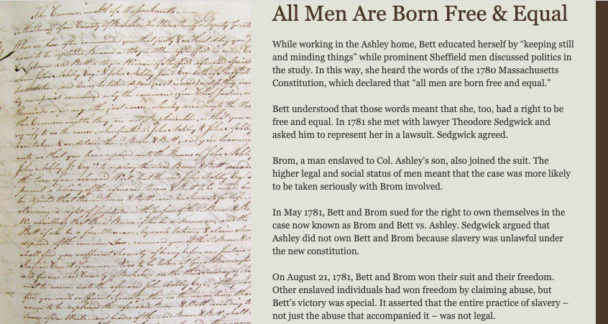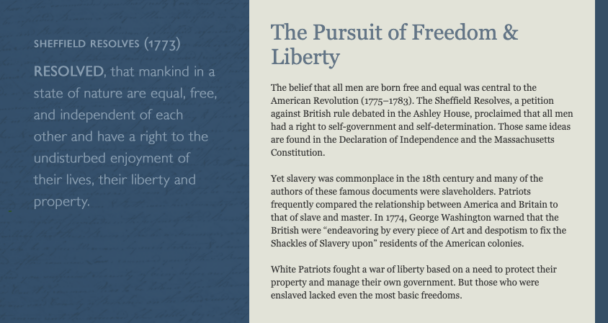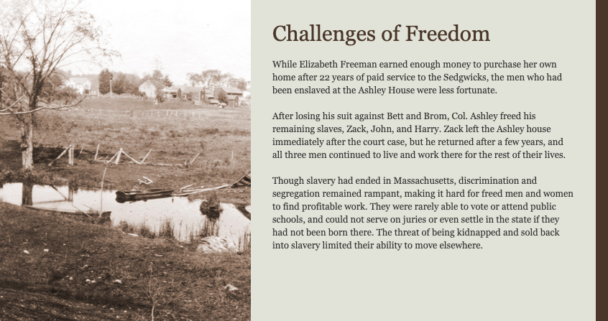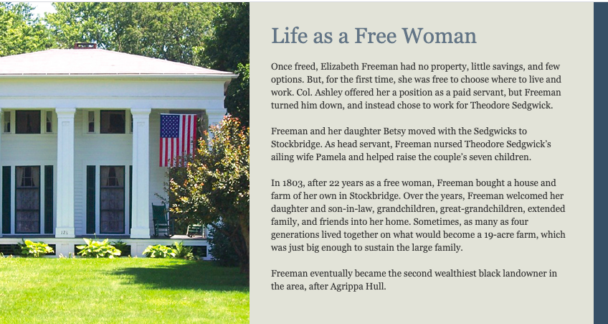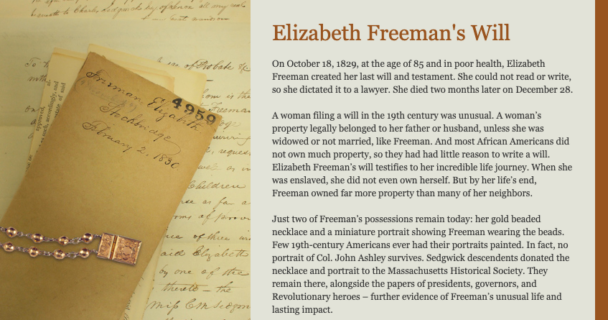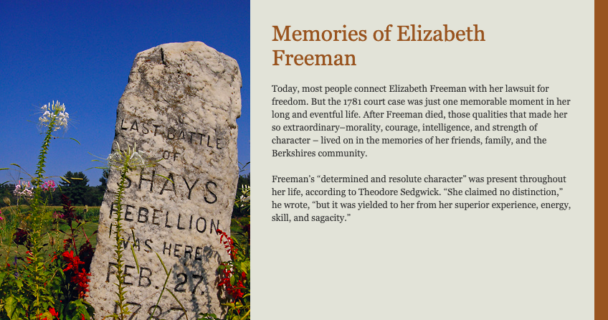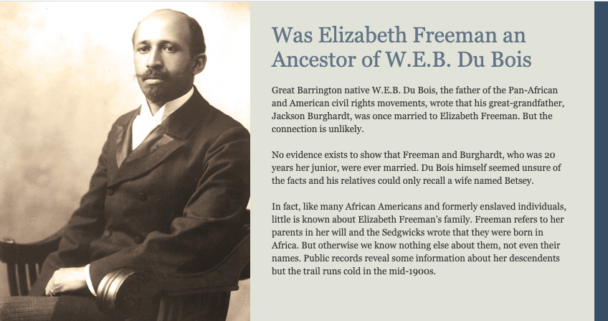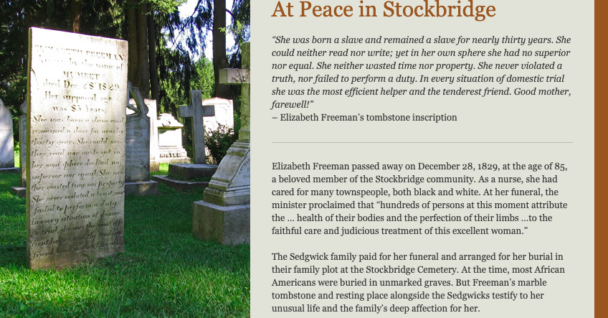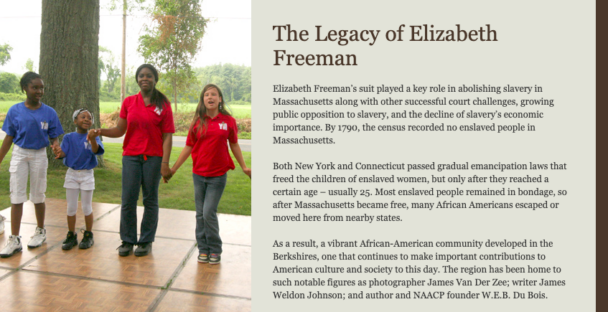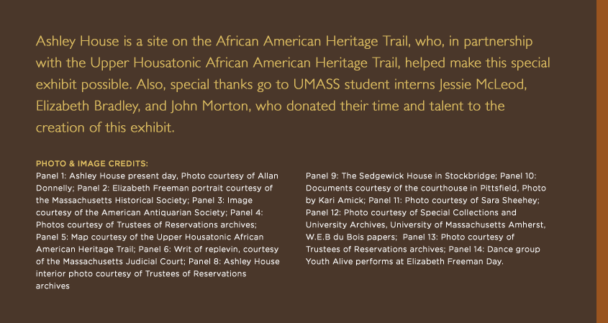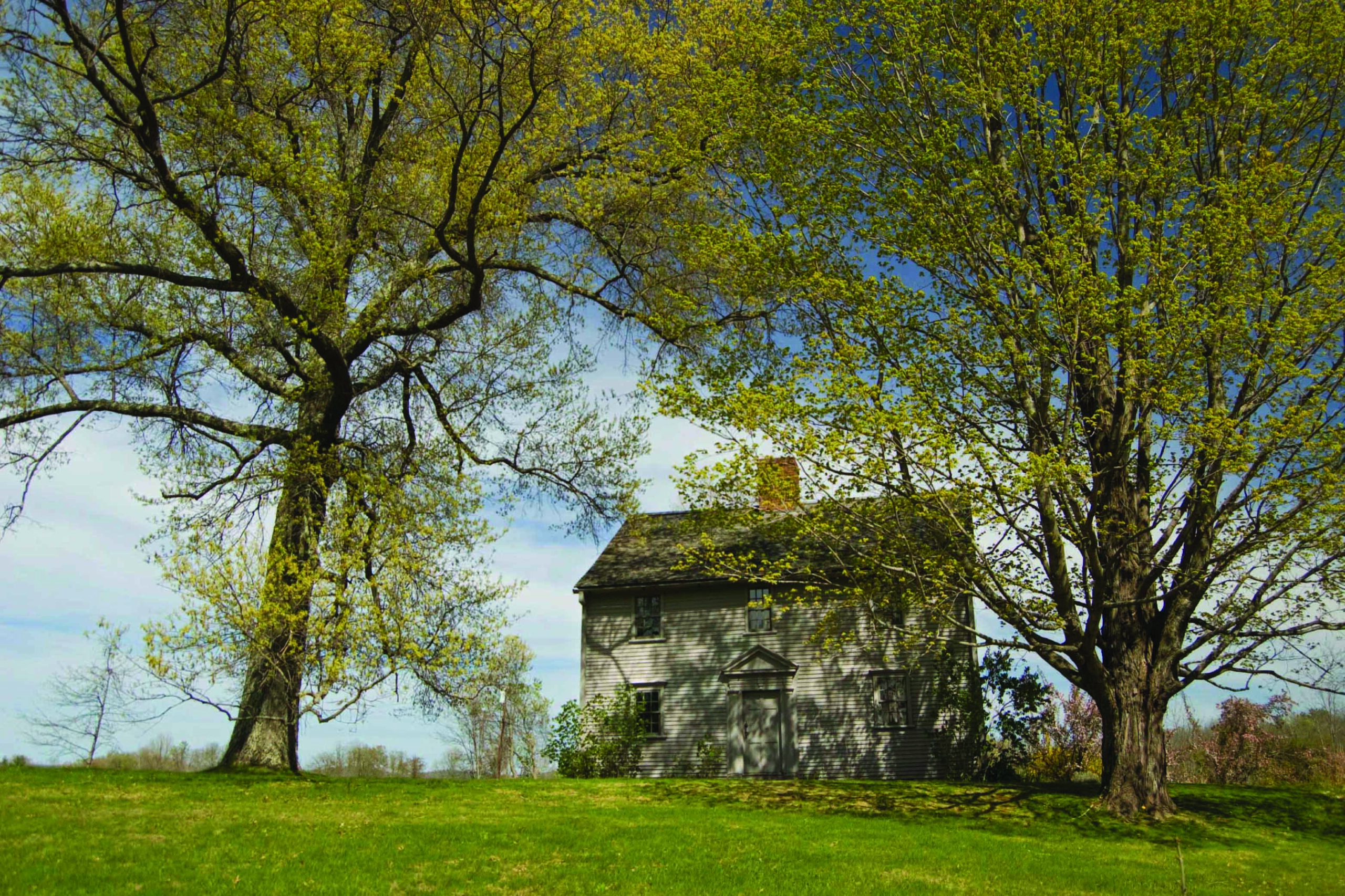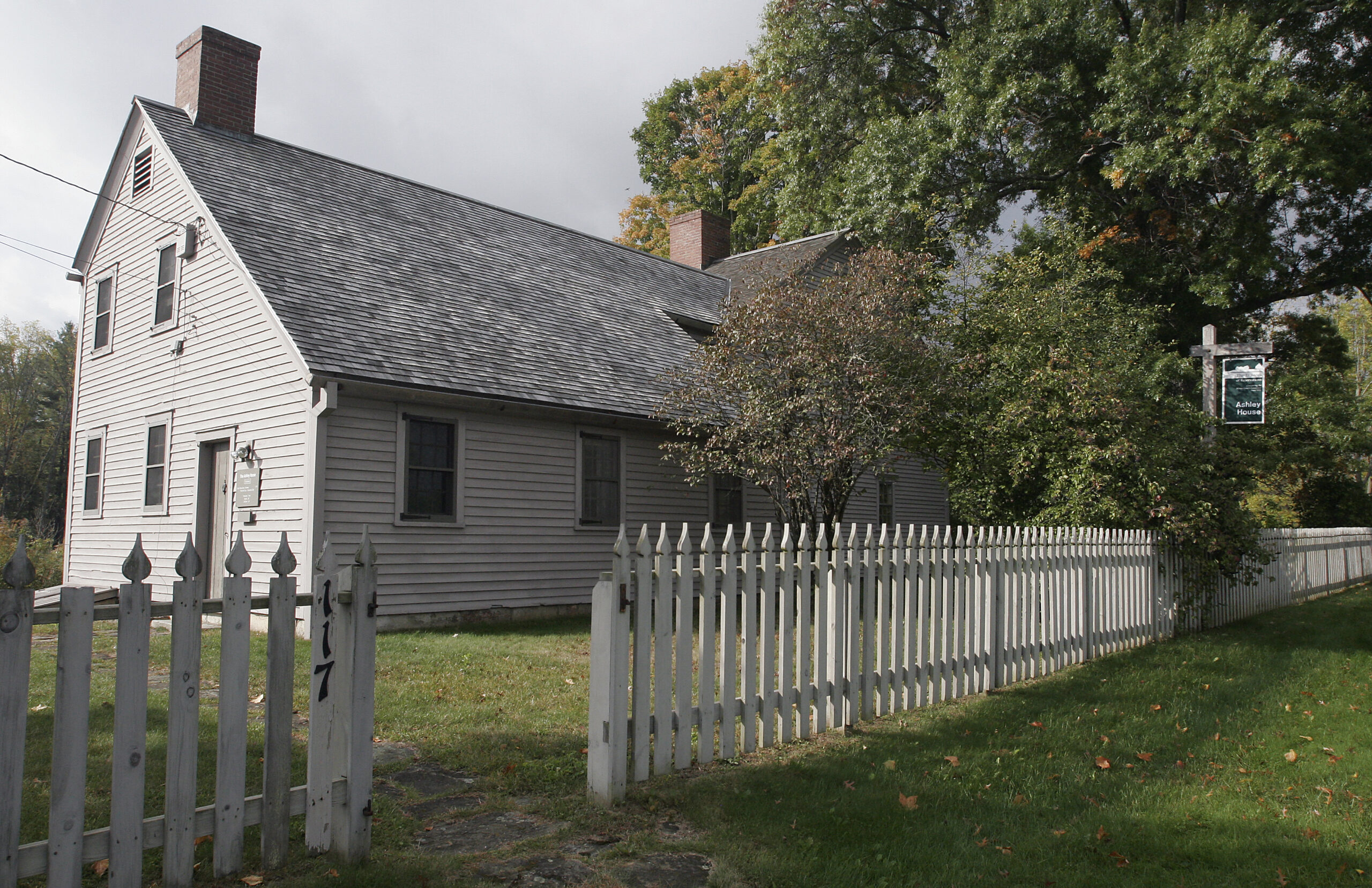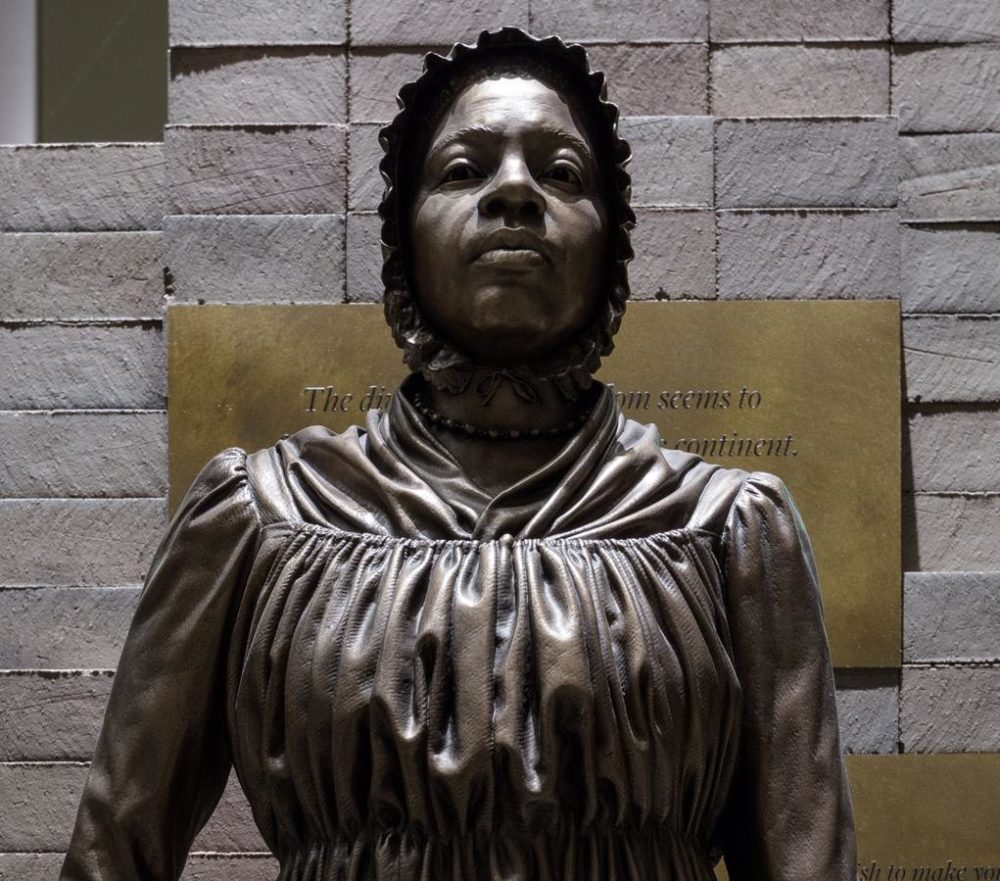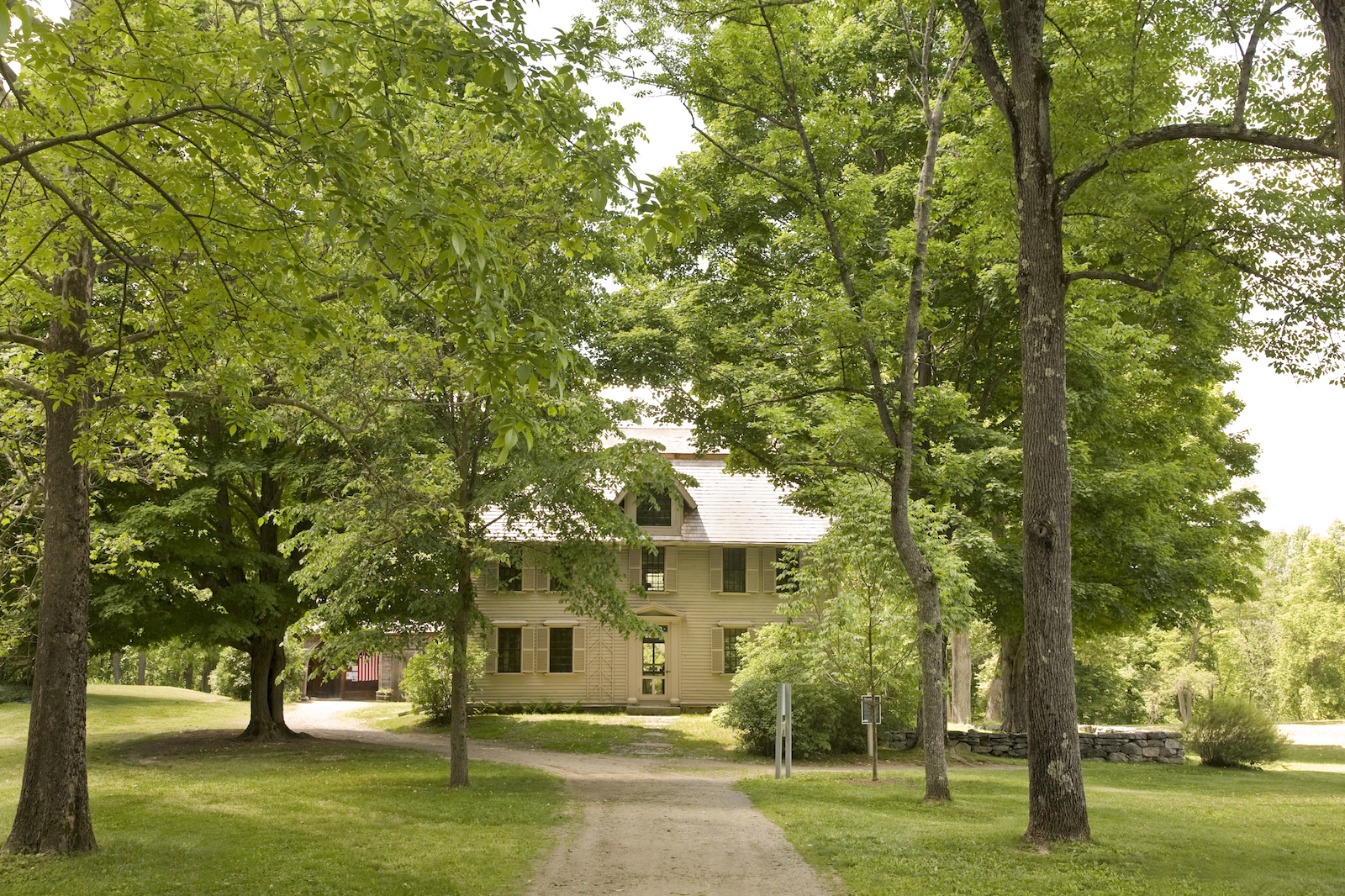The commerce of slavery was deeply integrated into the Massachusetts economy in the 18th century. Many white colonists, including Colonel John Ashley, who owned Ashley House and the surrounding fields in the 1700s, used enslaved laborers.
There were five enslaved people in the Ashley House including a woman named Bett. Her riveting story endures today. Bett could not read or write, but when she heard Ashley and other locals discussing the drafting of the Sheffield Resolves in 1773, she heard repeated a statement that she realized should apply to her and her fellow enslaved people: RESOLVED: That mankind in a state of nature are equal, free and independent of each other and have a right to the undisturbed enjoyment of their lives, their liberty and property.
After similar language was included in the Massachusetts Constitution in 1780, Bett sought out a lawyer, sued for her freedom, and her case prevailed. As a free person, she then changed her name to Elizabeth Freeman and lived out the rest of her long life as a beloved member of the community of Stockbridge, MA.
It was because of Bett’s courage and determination that the institution of slavery was finally abolished in Massachusetts. In her honor, we celebrate Elizabeth Freeman Day in Massachusetts every year on August 21, the day her freedom was won. Her legacy—which inspires us to take action against injustice to this day—is encapsulated in this video, in an exhibit* at Ashley House in Sheffield, MA, where Bett had been enslaved, and in the virtual exhibit, featured below.
